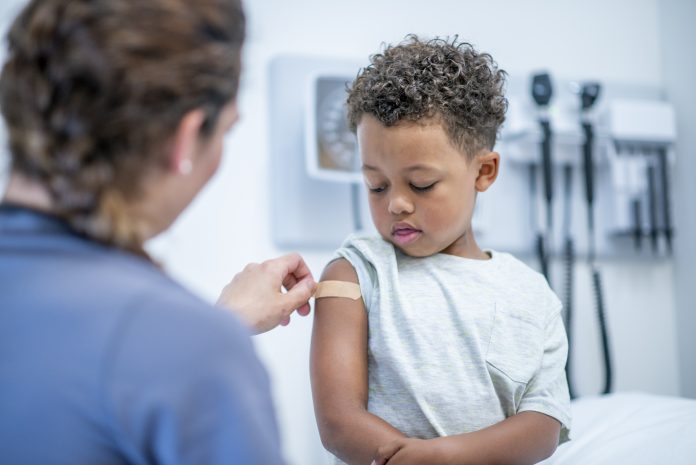The UK government has urged parents to check their children’s measles vaccine records due to an increase in virus cases
Measles is now circulating again in many countries around the world. The WHO has cautioned that Europe is likely to see a resurgence in cases, noting the importance of parents ensuring their children have the measles vaccine.
Measles is a highly infectious viral illness, and in April of 2023, there have already been 49 cases of measles compared to 54 cases in the whole of 2022.
With most cases being in London, some are linked to travel abroad, and others are linked to large events like concerts and schools.
People can check their measles, mumps, and rubella (MMR) vaccinations by checking their vaccine records in their red book. Children are offered the first dose of the measles vaccine when aged one year and the second dose aged 3 years 4 months.
What are the symptoms of measles?
Measles is a highly infectious disease that can lead to serious problems such as pneumonia, meningitis, and on rare occasions, long-term disability or death.
The NHS notes its cold-like symptoms, with the chances of a rash appearing a few days after the cold-like symptoms.
The first symptoms of measles include:
- High temperature
- Runny or blocked nose
- Sneezing
- A cough
- Red, sore, watery eyes
Researchers note that measles is particularly easy to catch in environments when in close contact with others.
Well below the 95% measles vaccination target
Recently, the rate of children being vaccinated against measles has fallen.
Uptake for the first dose of the MMR in children aged 2 years in England is 89% and uptake of 2 MMR doses in children aged 5 years is 85%.
This is well below the 95% target set by the World Health Organization (WHO), which is necessary to achieve and maintain elimination.
This globally decreasing rate of vaccination happened predominantly during the COVID-19 pandemic, exposing many children to serious infections, and increasing the risk of many countries’ outbreaks.
“Vaccines are our best line of defence against diseases like measles”
The UK government warns those particularly going to travel this summer, and people attending summer festivals where measles can spread more easily.
Those travelling and going to large festivals should be cautious
Dr Vanessa Saliba, Consultant Epidemiologist at UKHSA, said: “We are calling on all parents and guardians to make sure their children are up to date with their 2 MMR doses. It’s never too late to catch up, and you can get the MMR vaccine for free on the NHS whatever your age.
“Vaccines are our best line of defence against diseases like measles, mumps and rubella and help stop outbreaks occurring in the community.
“Measles spreads very easily and can lead to complications that require a stay in hospital and on rare occasions can cause lifelong disability or death, so it is very concerning to see cases starting to pick up this year.
“During the COVID-19 pandemic we saw a fall in uptake for the routine childhood vaccinations, including MMR which leaves us vulnerable to outbreaks, especially as people travel abroad for summer holidays to places where measles is more common.”
The government advises anyone with symptoms to stay at home and phone their GP or NHS 111 for advice before visiting the surgery or A&E to help to prevent the illness from spreading further.











